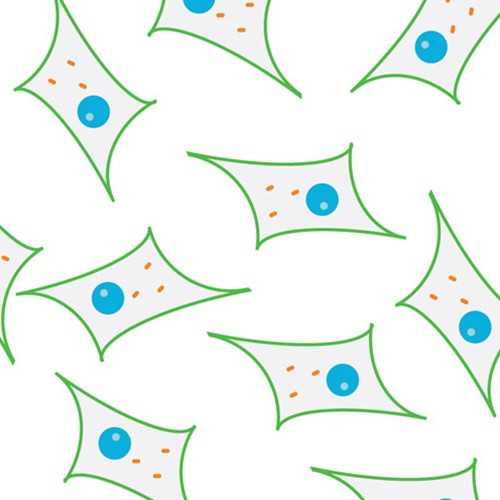Mouse Embryonic Fibroblast Bcl-xL Knock Out Cell Line (MEF Bcl-xL-KO)
Mouse embryonic fibroblast cell line generated from a mouse embryo lacking B-cell lymphoma-extra-large (Bcl-xL) expression.
Also available: Mouse Embryonic Fibroblast Bcl-xL Expressing Cell Line (MEF wild-type)
B-cell lymphoma 2 (Bcl-2) proteins are major regulators of cellular responses to intrinsic and extrinsic apoptotic stimuli. Among them, overexpression of the antiapoptotic protein Bcl-xL modulates intracellular Ca2+ homeostasis and organelle-specific apoptotic signaling pathways. Bcl-xL is a transmembrane molecule in the mitochondria and acts as a pro-survival protein by preventing the release of mitochondrial contents such as cytochrome c, which would lead to caspase inactivation. Relative amounts of pro- and anti-survival Bcl-2 family of proteins define whether the cell will undergo cell death. If more Bcl-xL is present, then pores are non-permeable to pro-apoptotic molecules and the cell survives. However, if Bcl-2 members Bax and Bak become activated, and Bcl-xL is sequestered away by gatekeeper BH3-only factors (e.g., Bim), causing a pore to form, cytochrome c is released leading to initiation of caspase cascade leading to apoptotic events.
From the laboratory of Chi Li, PhD, University of Louisville.
Mouse embryonic fibroblast cell line generated from a mouse embryo lacking B-cell lymphoma-extra-large (Bcl-xL) expression.
Also available: Mouse Embryonic Fibroblast Bcl-xL Expressing Cell Line (MEF wild-type)
B-cell lymphoma 2 (Bcl-2) proteins are major regulators of cellular responses to intrinsic and extrinsic apoptotic stimuli. Among them, overexpression of the antiapoptotic protein Bcl-xL modulates intracellular Ca2+ homeostasis and organelle-specific apoptotic signaling pathways. Bcl-xL is a transmembrane molecule in the mitochondria and acts as a pro-survival protein by preventing the release of mitochondrial contents such as cytochrome c, which would lead to caspase inactivation. Relative amounts of pro- and anti-survival Bcl-2 family of proteins define whether the cell will undergo cell death. If more Bcl-xL is present, then pores are non-permeable to pro-apoptotic molecules and the cell survives. However, if Bcl-2 members Bax and Bak become activated, and Bcl-xL is sequestered away by gatekeeper BH3-only factors (e.g., Bim), causing a pore to form, cytochrome c is released leading to initiation of caspase cascade leading to apoptotic events.
From the laboratory of Chi Li, PhD, University of Louisville.
| Product Type: | Cell Line |
| Name: | MEF (Bcl-xL-KO) |
| Cell Type: | Fibroblast |
| Accession ID: | Q07817, CVCL_HC60 |
| Morphology: | Cells are bipolar or multipolar, have elongated shapes, and grow attached to a substrate |
| Organism: | Murine |
| Source: | Embryos |
| Biosafety Level: | BSL2 |
| Subculturing: | 1/10 split |
| Growth Conditions: | DMEM + 10% fetal bovine serum |
| Cryopreservation: | fetal bovine serum + 10% DMSO |
| Storage: | Liquid nitrogen |
| Shipped: | Dry ice |
- Eno CO, Eckenrode EF, Olberding KE, Zhao G, White C, Li C. Distinct roles of mitochondria- and ER-localized Bcl-xL in apoptosis resistance and Ca2+ homeostasis. Mol Biol Cell. 2012 Jul;23(13):2605-18.
- Smith ML, Tahir SK. Quantification of BCL-2 Family Members by Flow Cytometry. Methods Mol Biol. 2019;1877:163-172. View Article
If you publish research with this product, please let us know so we can cite your paper.


